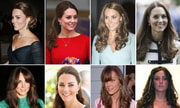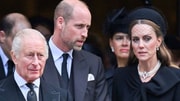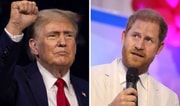Kate Middleton's duty: To carry out the wishes of political leaders, 'like it or not'
Kate Middleton's, public position and private influence.
The role of the British monarchy in the 21st century is a curious balance of tradition and modern expectation. For figures like the Princess of Wales, Catherine, it means navigating an intricate landscape of public duty, personal passions, and, inevitably, political currents. While the royal family remains politically neutral in an official capacity, their influence is a potent form of "soft power," shaping public discourse and representing the nation on a global stage, like it or not. This creates a delicate, sometimes precarious, situation where the royal family's wishes might inadvertently align with or diverge from those of elected political leaders, leading to questions about their genuine autonomy.
Navigating the fine line between royal duty and external wishes
The public perceives the Princess of Wales as a devoted, meticulous working royal, balancing her family life with a packed schedule of engagements. She champions charitable causes, particularly those concerning early childhood development and mental health, areas she has demonstrated a genuine, personal passion for. However, the machine of state requires the royal family to act as ambassadors, carrying out duties both domestically and overseas to strengthen diplomatic and economic relations. This dual responsibility raises a critical question about whose agenda, ultimately, is being served. Are royal projects truly driven by the royals' personal wishes, or are they subtly steered by the government of the day to support specific political objectives?
The wishes of those in power: balancing symbolic power and executive authority
In a constitutional monarchy, the sovereign and their family operate on the advice of the government. This protocol means that the royal itinerary, including overseas visits and the focus of certain charitable campaigns, can be influenced by political leaders seeking to advance a national agenda. This dynamic is more nuanced than simply receiving orders, but it exists. The royal family's duty is to represent the country, and this often means supporting projects that serve the government's strategic interests. This delicate dance highlights the fundamental tension between a monarch's symbolic power and a politician's executive authority, often leading to questions about the true motives behind high-profile royal appearances.
A delicate balancing act: personal wishes within an
Kate Middleton's duty: To carry out the wishes of political leaders, 'like it or not'
framework
While royal figures must operate within these established constitutional boundaries, there are opportunities for personal agency. Many modern royals demonstrate a strong determination to champion causes close to their hearts, establishing their own initiatives and foundations. This personal conviction, in some ways, pushes back against the notion that their duty is merely to follow a script dictated by those in power. The challenge lies in harmonizing personal wishes with the broader obligations of the monarchy. How does a public figure reconcile personal convictions with the expectations of a role that demands neutrality, even when faced with the wishes of those in power?
The complexities of duty: navigating expectations in the public eye
At times, the distinction between personal projects and institutional priorities can blur, creating complexities for modern royals. The pressure to maintain a public image while adhering to the broader, strategic wishes of those in power is immense. Duty is a performance of unity and tradition, a role that must be played. The institution's survival relies on this careful, calculated approach.
The public gaze and the national interest
The public's intense interest in the royal family, combined with media scrutiny, ensures that every action is analyzed, and every choice scrutinized. This makes the subtle influence of those in power, and the subsequent choices royals must make regarding their duty, a permanent subject of discussion. Every royal tour, every charity patronage, and every public appearance is placed under a microscope. While personal wishes are undoubtedly a driving force, the unspoken requirement to align with the national interest means decisions are never made in a vacuum. It is a powerful illustration of the invisible pressures that come with a life of public service.
Final thoughts: the human element in public duty
Ultimately, the role of modern royals, and the compromises required of them, is a fascinating and complicated subject. Many figures attempt to navigate this difficult terrain with grace and a clear sense of purpose. While they may have to support certain initiatives on behalf of those in power, dedication to various causes proves that even within a rigid institutional framework, there is room for personal impact. It is a testament to their strength that they continue to carve out a meaningful legacy, all while balancing the expectations of their duty and the unyielding spotlight of public opinion.





